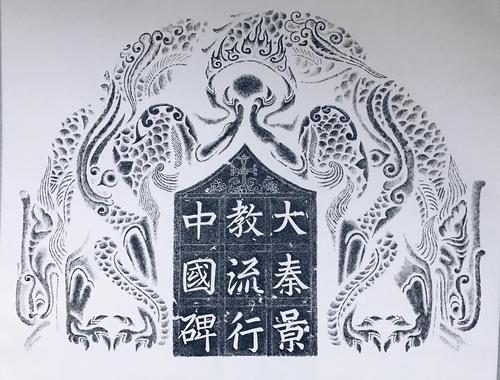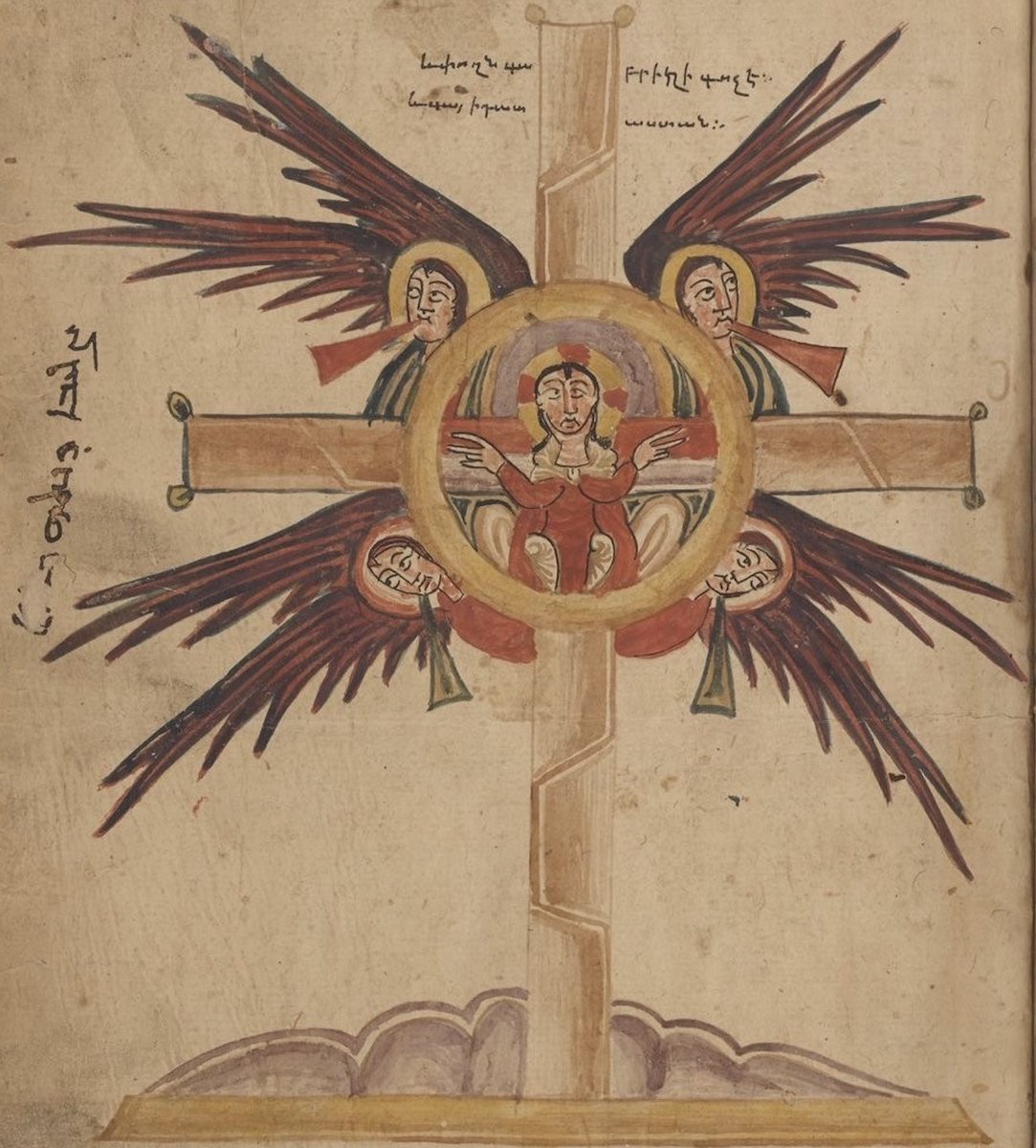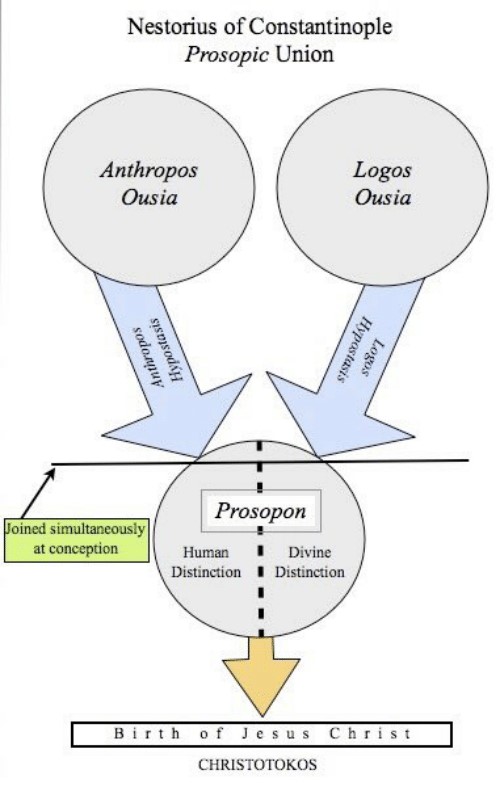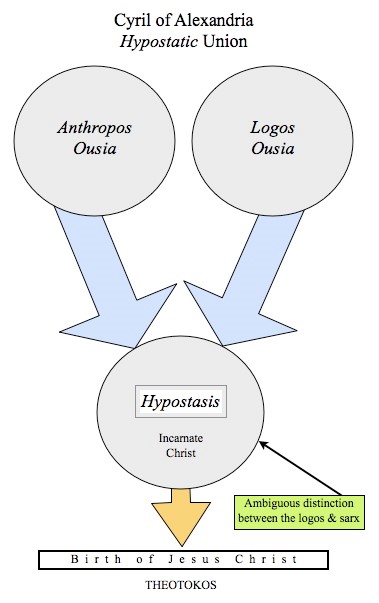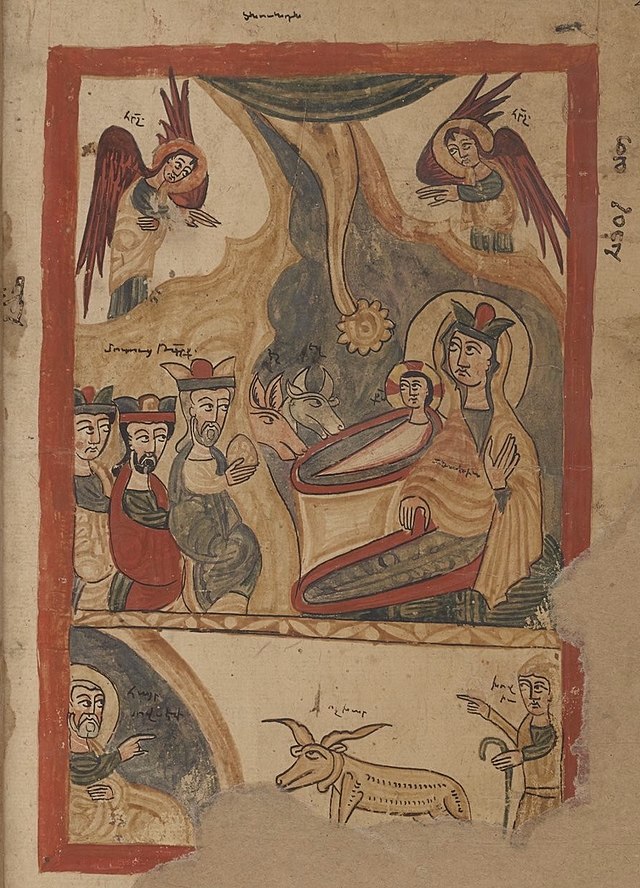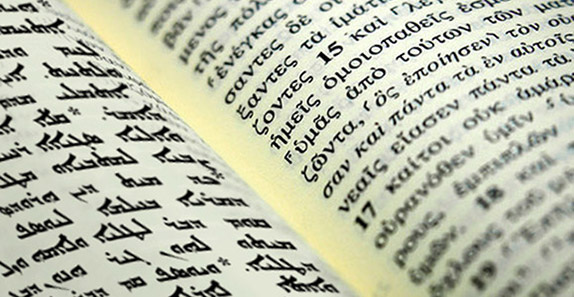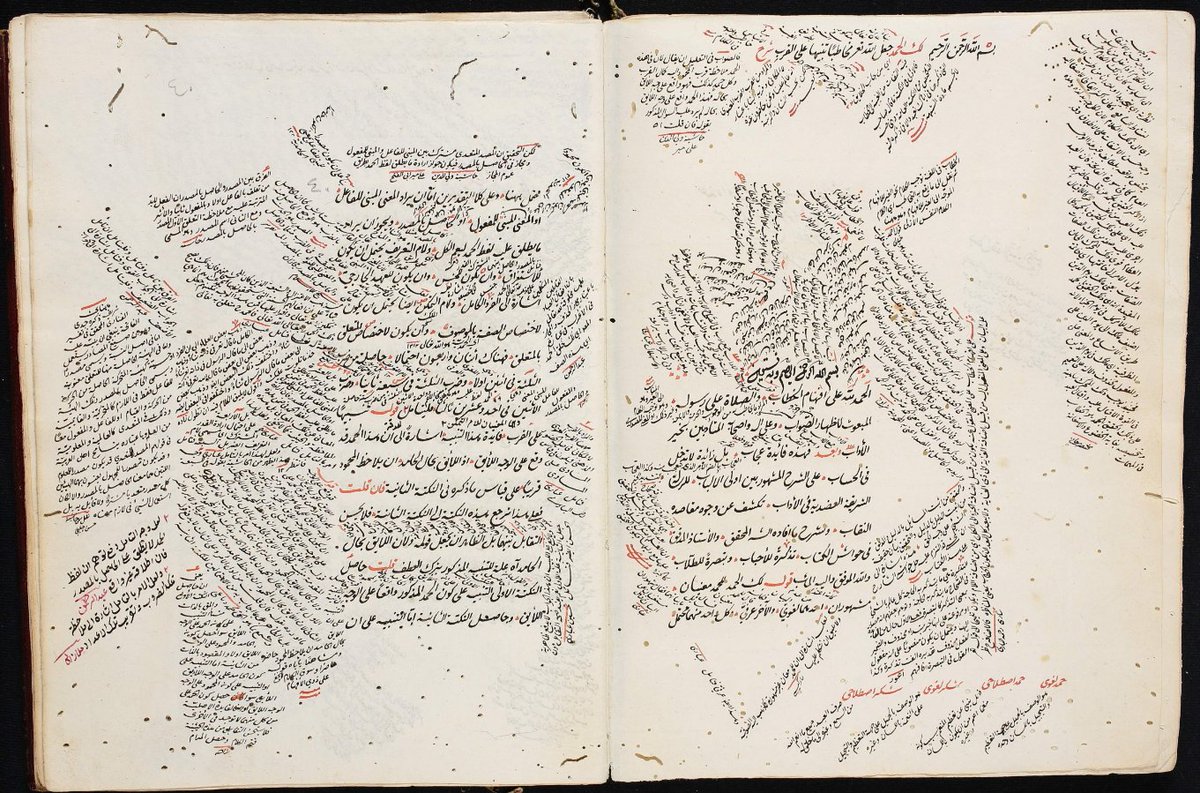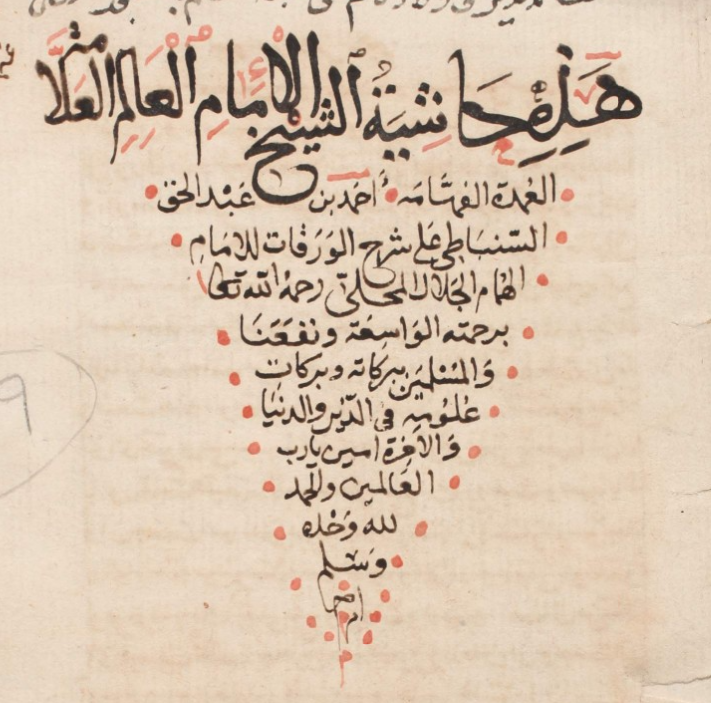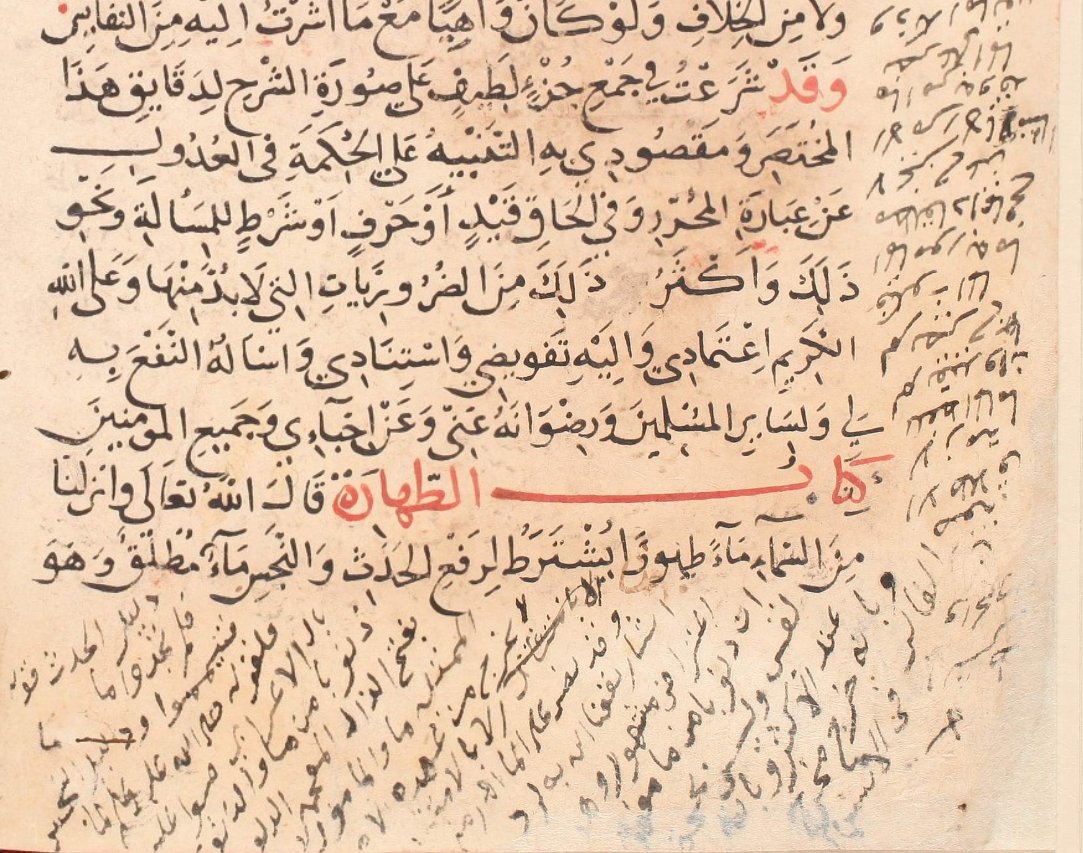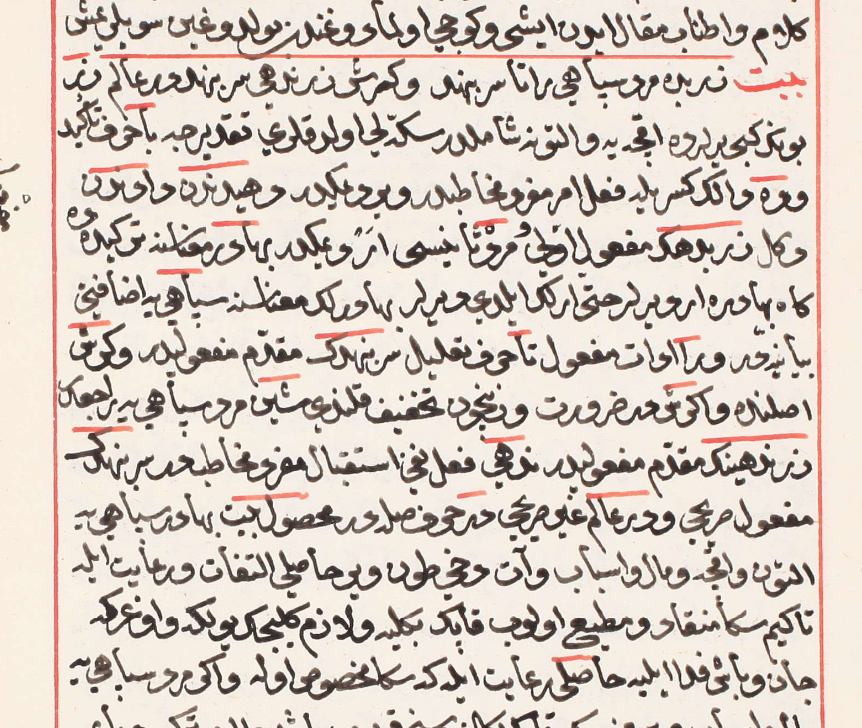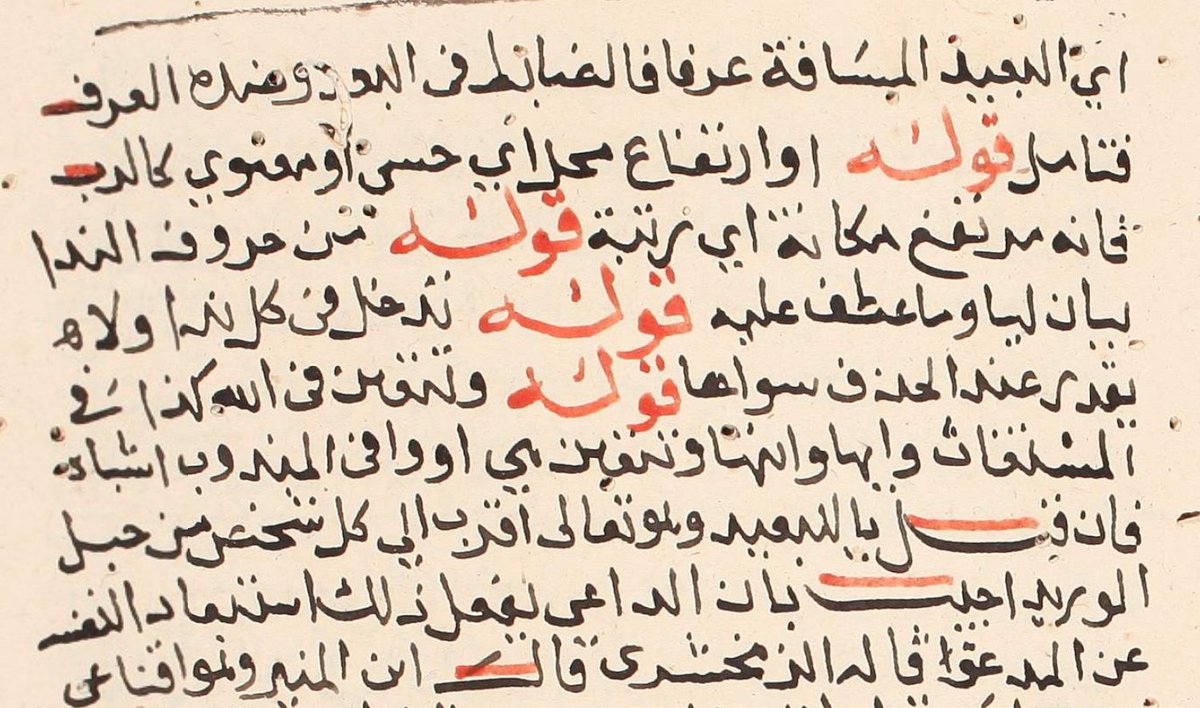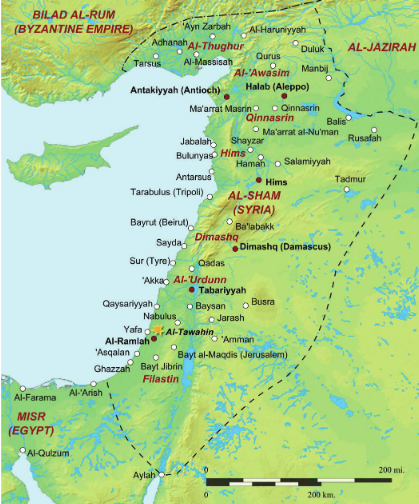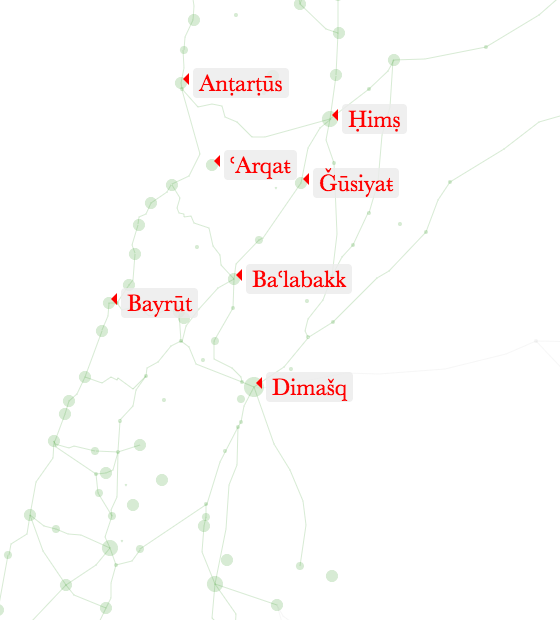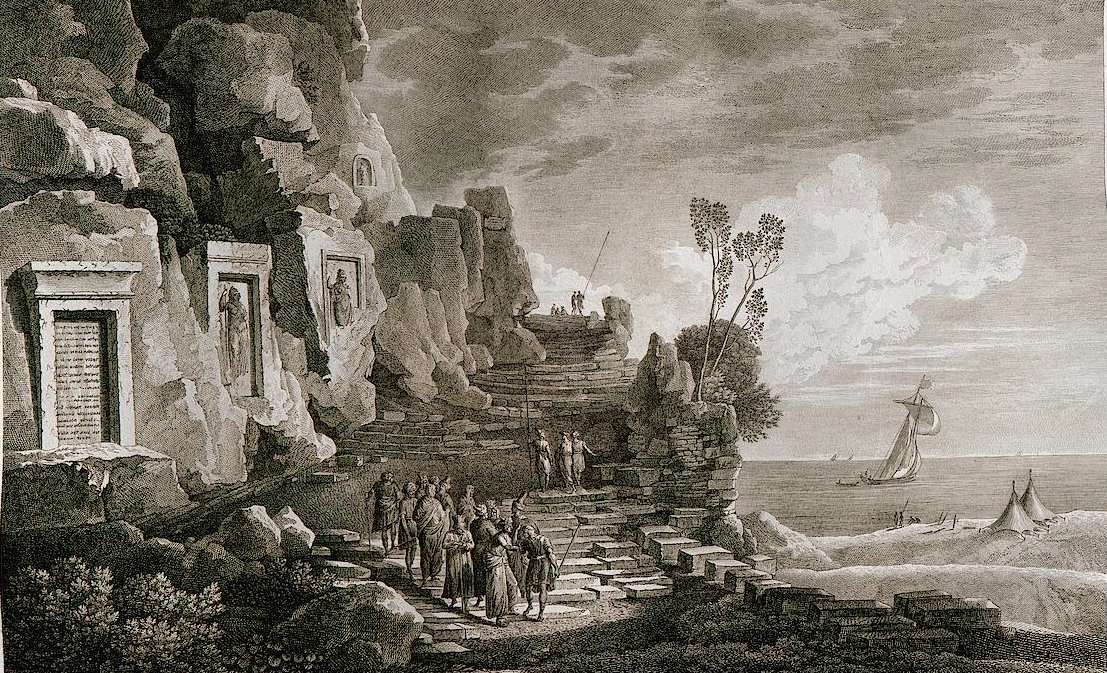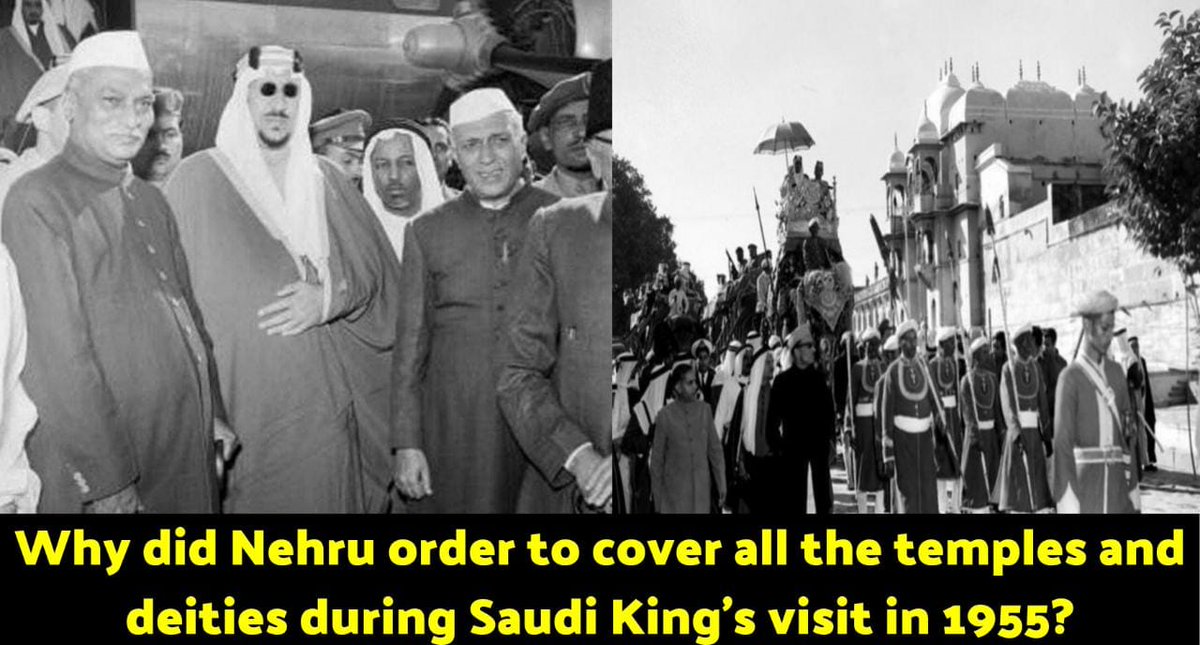How do you explain the Trinity in Chinese? If you're a Christian in Tang China, there's a few ways!
I'm @ChenHuailun, back for my last #Twittistorian thread, this time on translating the names of God in Chinese Christian documents. ~ahc #jingjiao 1/
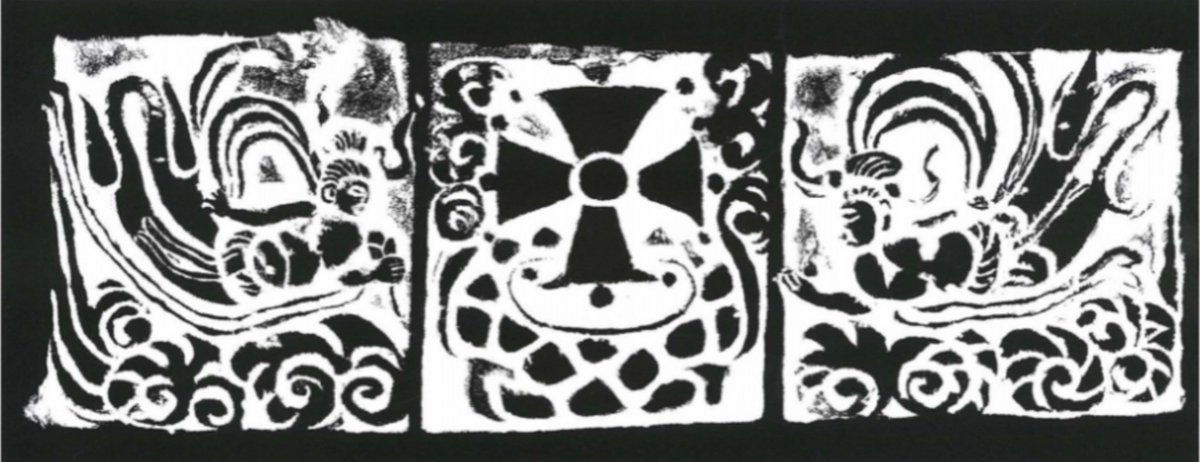
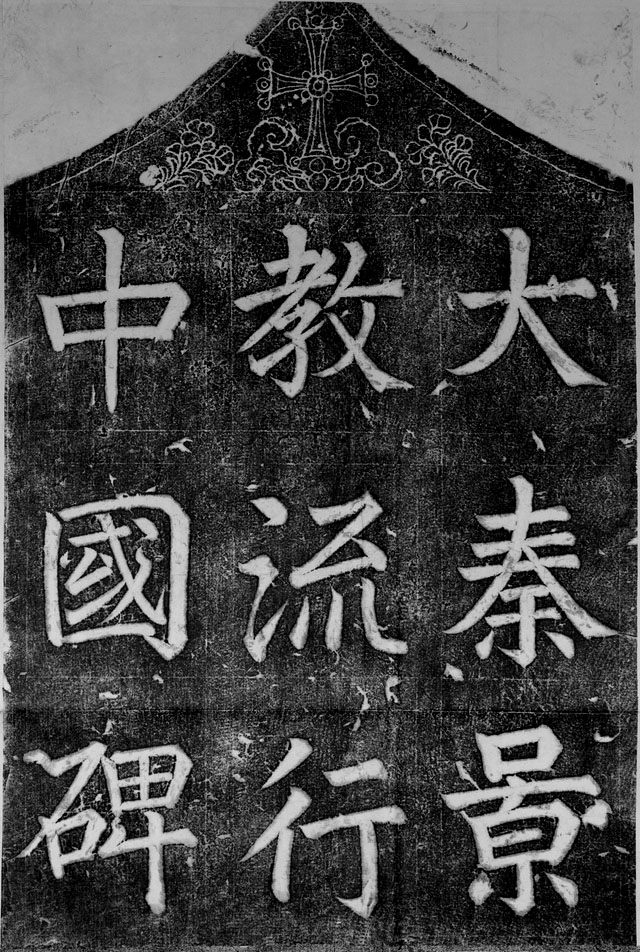
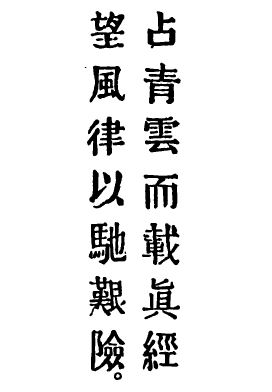
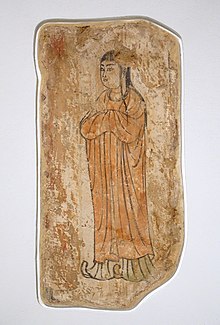

For those who may be familiar with Syriac or even other Semitic languages, try to look at these Middle Chinese pronunciations and guess their meanings. ~ahc #jingjiao /11
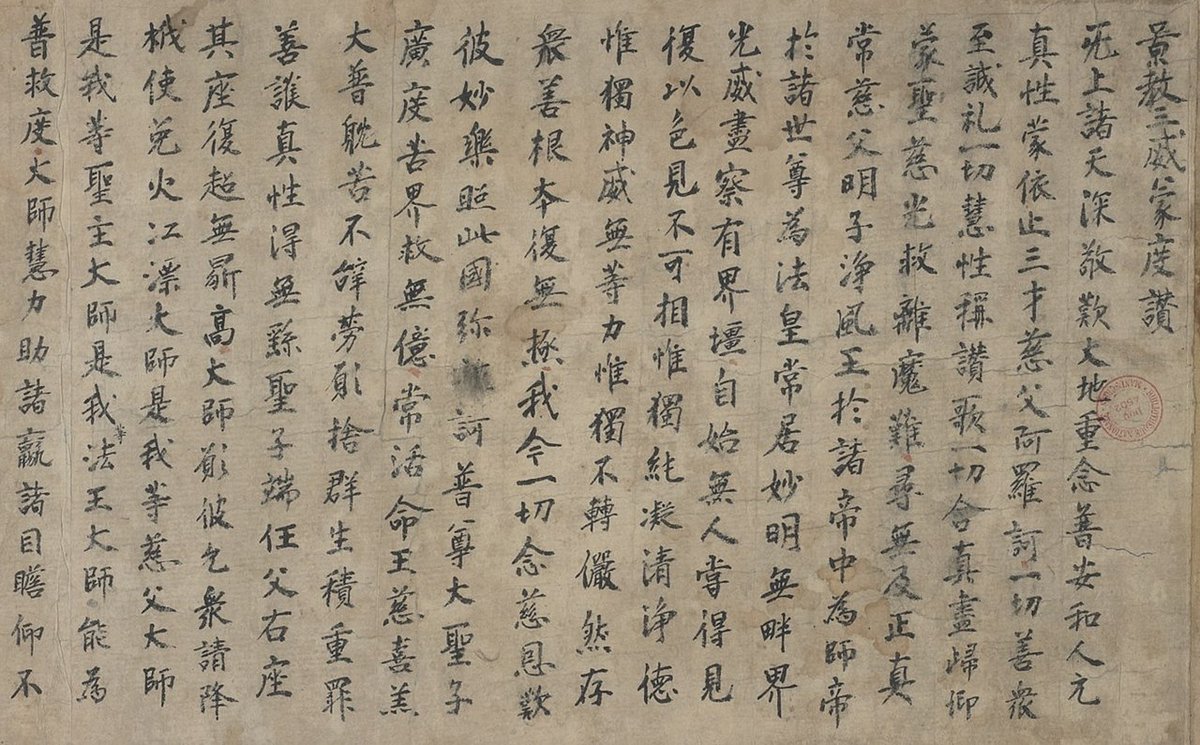
彌施訶 [Mandarin: mi-shi-he; Middle Chn: mji-ʂi-xa]
盧訶寧俱沙 [Mandarin: lu-he-ning-ju-sha; Middle Chn: lu-xa-niajn-ky-ʂa]
~ahc #jingjiao /12
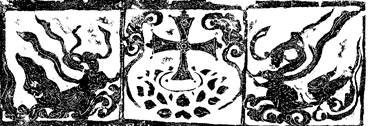

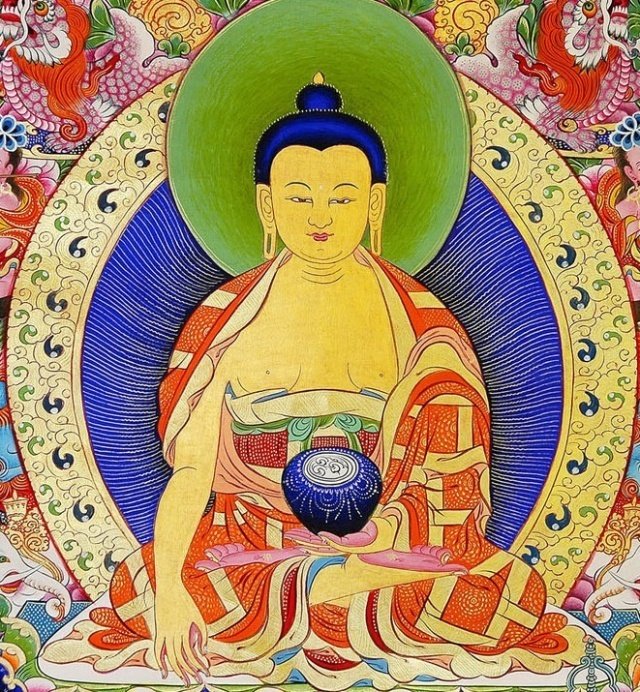
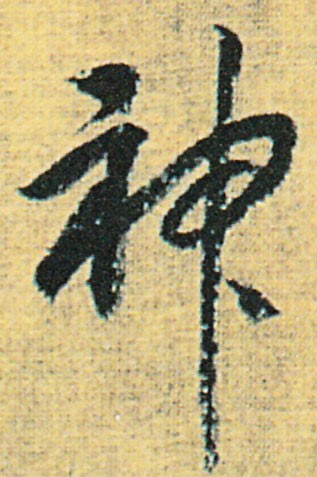
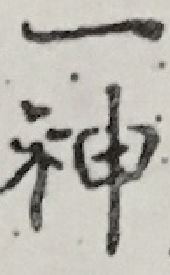
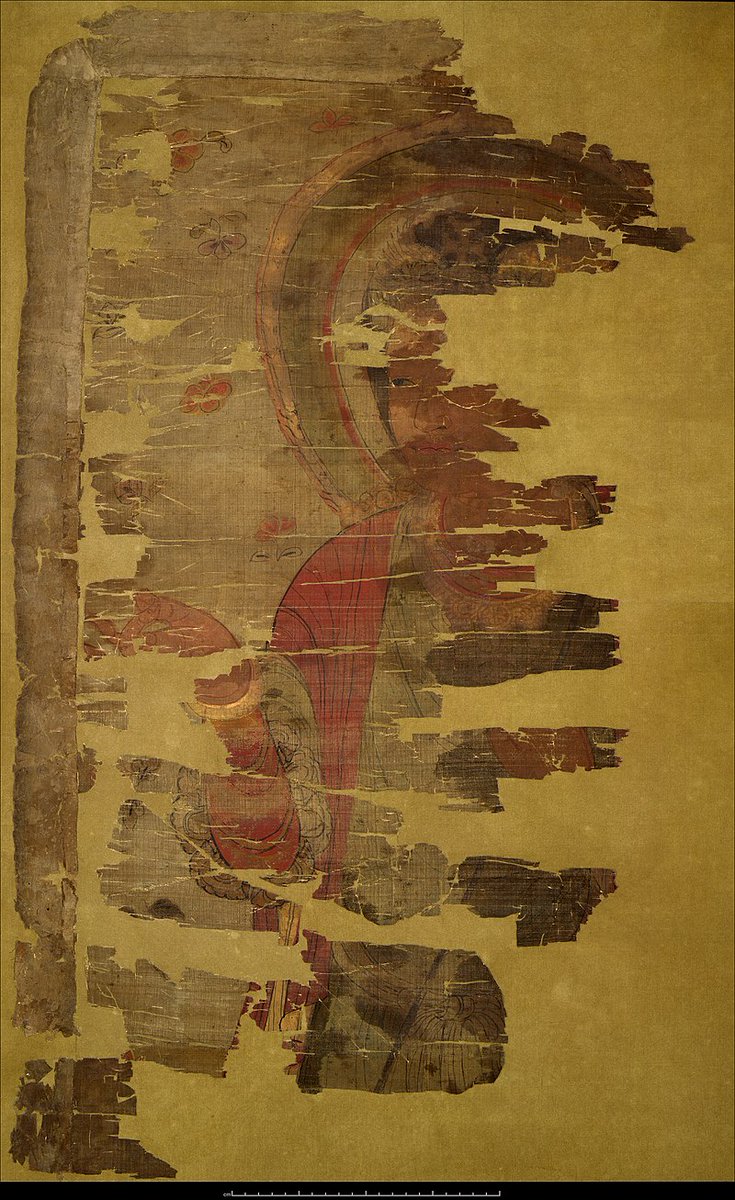
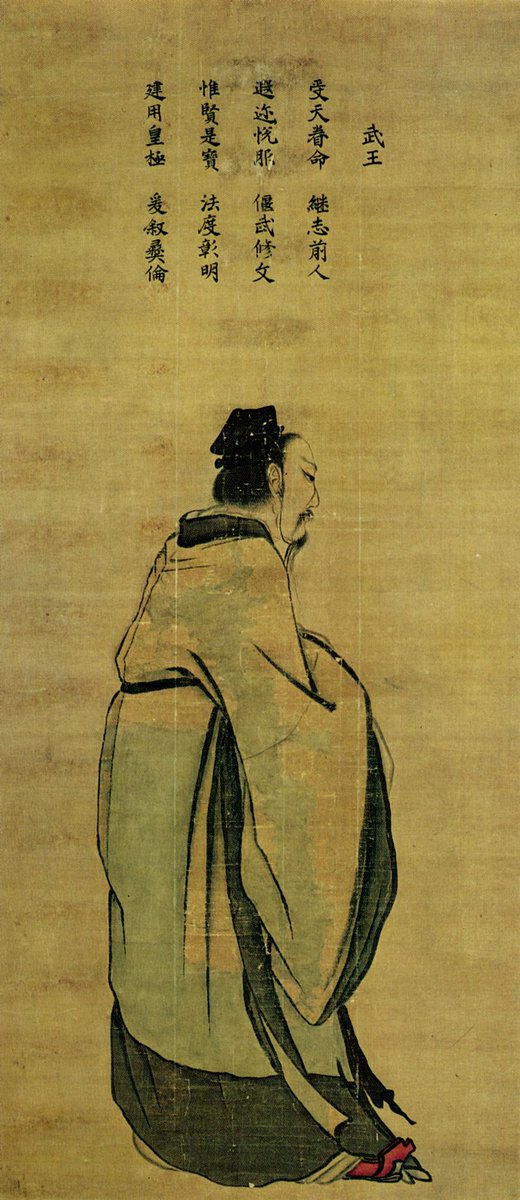
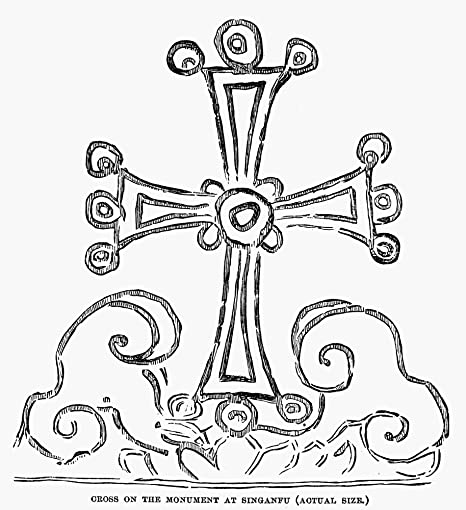
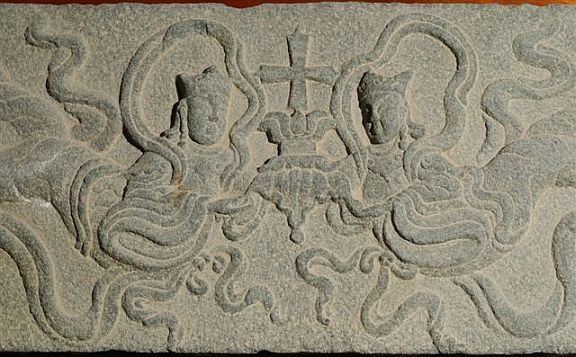
More from Tweeting Historians
I want to talk about the key textual elements you might find in an Islamic manuscript. I'll focus on this manuscript, roughly 18th century, of an Arabic history of the rulers of Egypt called Nuzhat al-nāẓirīn, by Marʻī al-Karmī (d. 1623/4).
Budeiry Library (Jerusalem) MS 593 -jm
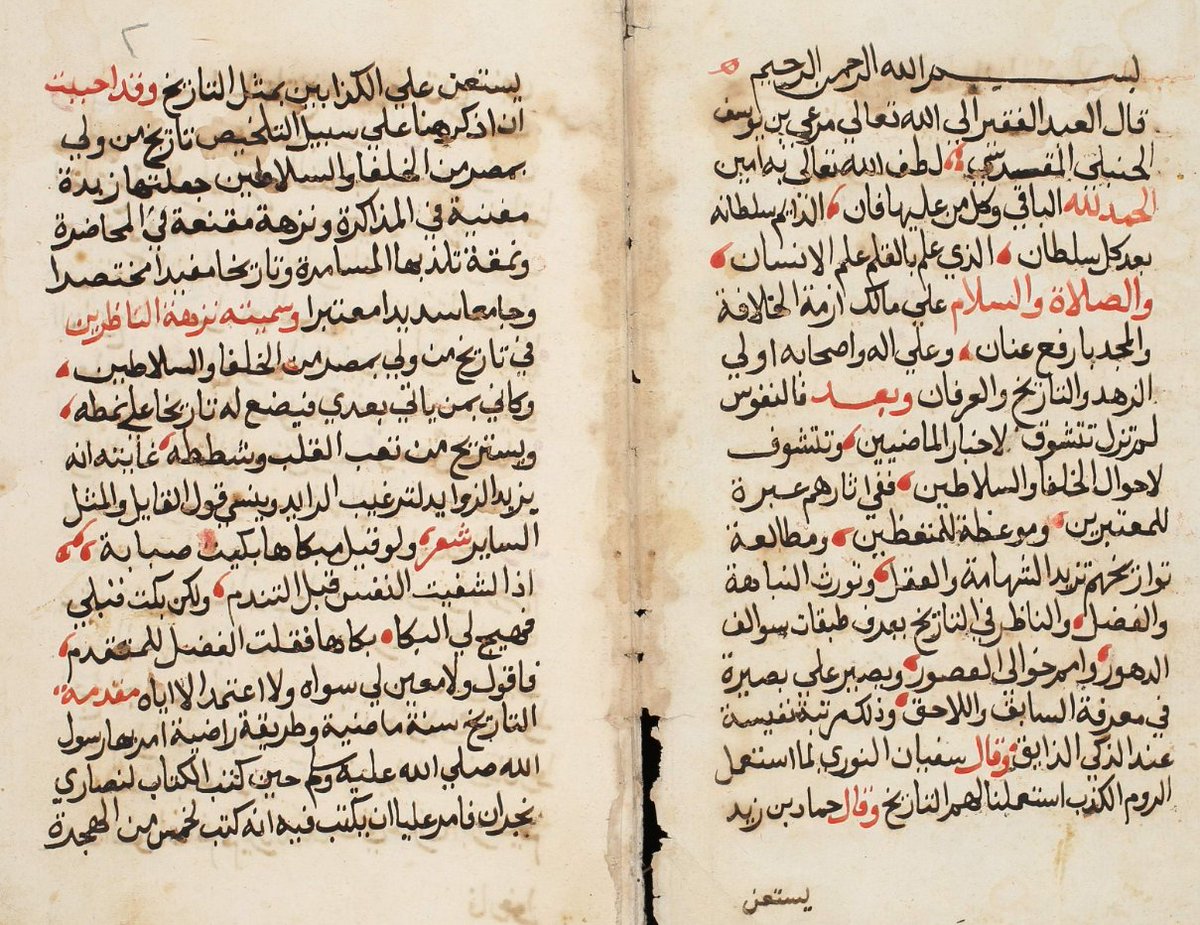
These texts have many elements designed to help the reader understand what they're saying, and choices by the scribe who copied the manuscript often help as well. Let's see what's here. -jm
First, almost every Islamic text begins with the invocation "in the name of God, the compassionate, the merciful." The wording is never changed, and it's always in Arabic, no matter what language the text is, although you might add phrases like "and we ask God for help." -jm
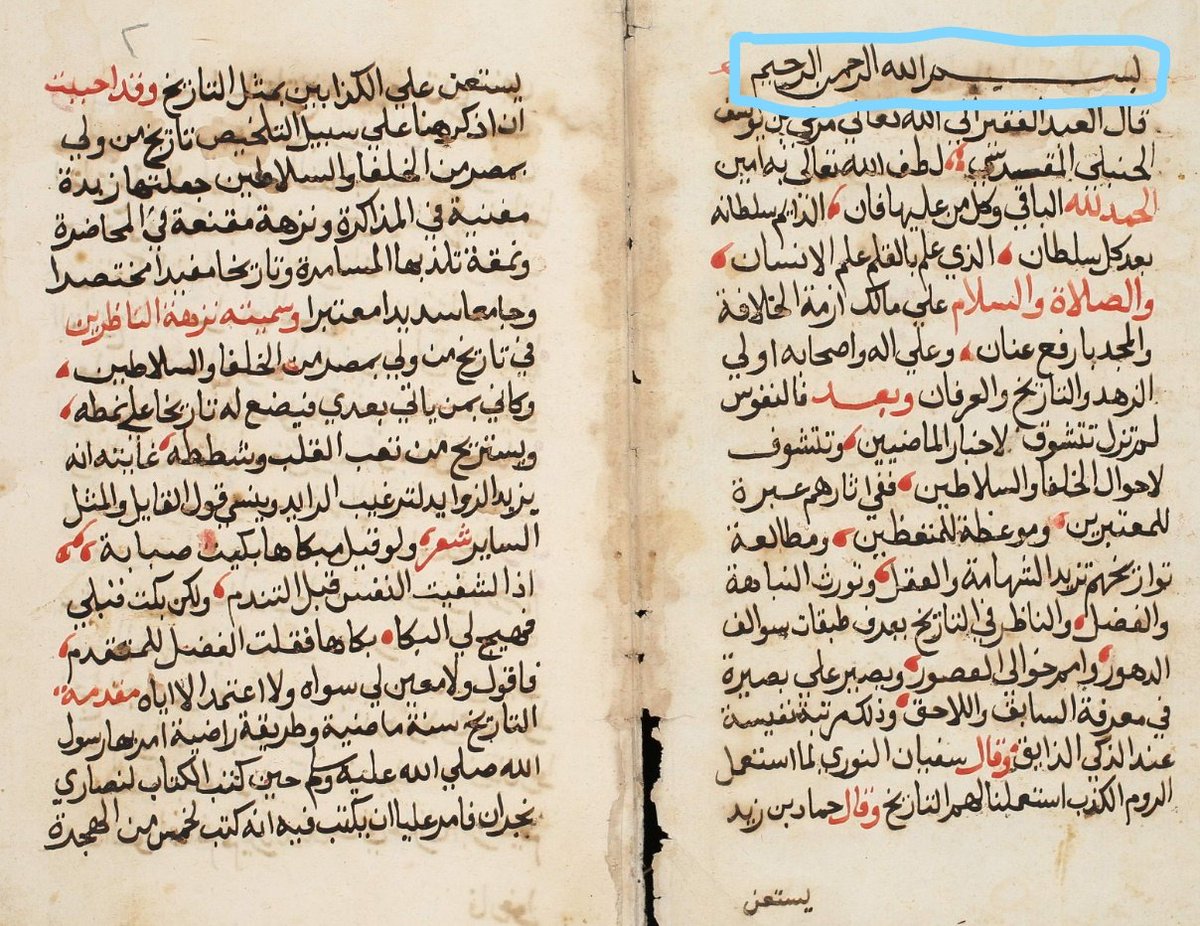
Christians were able to do more experimentation with their invocations, as you can see from the examples here. https://t.co/wEPWRitCWA -jm
After the invocation (basmalah), you might have what this text has, which is an introduction of the author in the form "the poor slave of God [so-and-so] said..." often followed by a quick prayer for the author. -jm
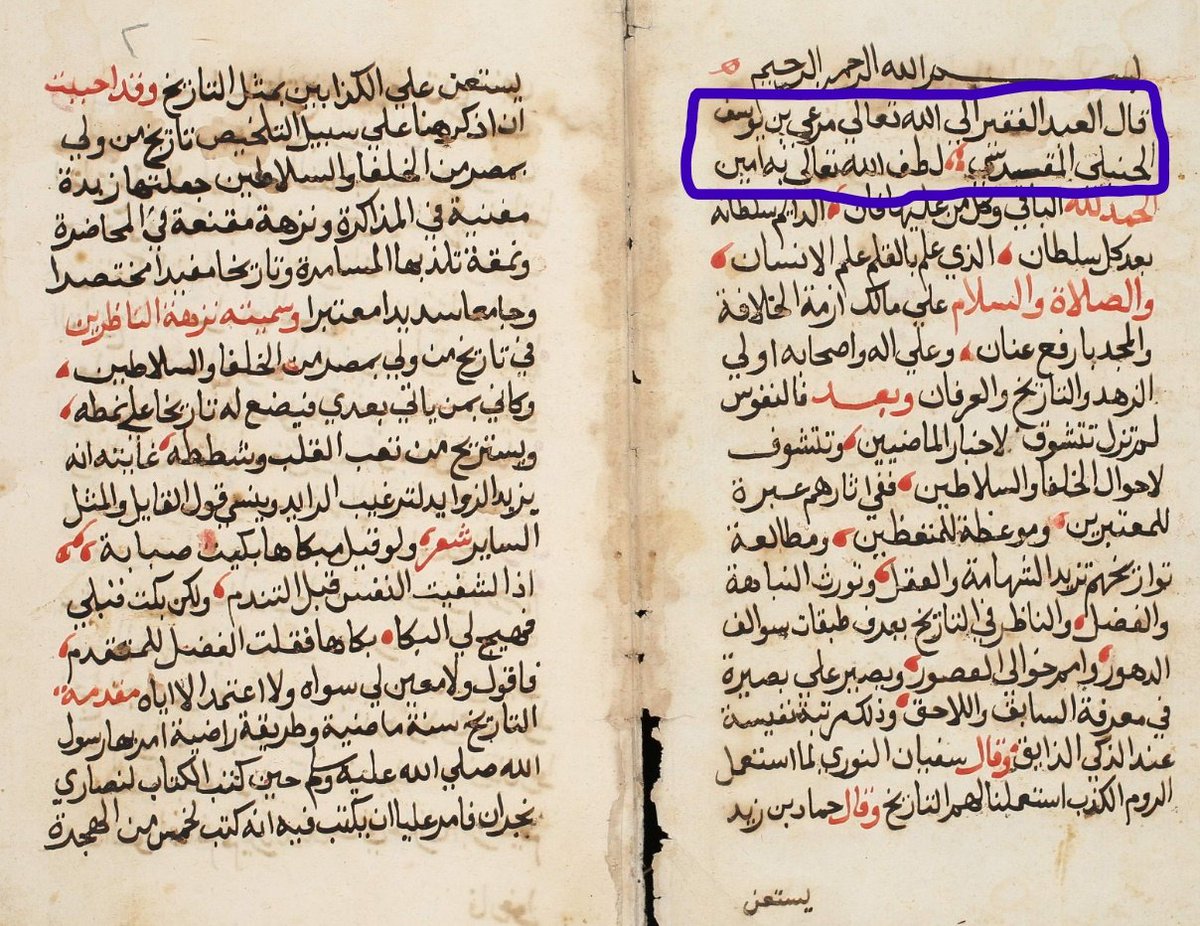
Budeiry Library (Jerusalem) MS 593 -jm

These texts have many elements designed to help the reader understand what they're saying, and choices by the scribe who copied the manuscript often help as well. Let's see what's here. -jm
First, almost every Islamic text begins with the invocation "in the name of God, the compassionate, the merciful." The wording is never changed, and it's always in Arabic, no matter what language the text is, although you might add phrases like "and we ask God for help." -jm

Christians were able to do more experimentation with their invocations, as you can see from the examples here. https://t.co/wEPWRitCWA -jm
These little prayers are fun pic.twitter.com/hJYk2M01bO
— Josh Mugler (@J_mugs) February 16, 2019
After the invocation (basmalah), you might have what this text has, which is an introduction of the author in the form "the poor slave of God [so-and-so] said..." often followed by a quick prayer for the author. -jm

More from World
A few thoughts on this sad development 👇👇
20 academics criticizing an paper is fine; good science, really
10000+ hate mail for studying schools in Sweden is insane
Anonymous docs/ prof (hiding in faceless accts) on twitter smearing researchers is insane
[thread] https://t.co/QYldLD3WO0

In April 2020, @jflier and I saw this coming
We saw increasingly heated and personal attacks against scientists merely for having a range of views on COVID19 (PS there is no playbook/ right ans)
Tying science to naked politics was also bad idea, we
Yet, repeatedly that is what happened. Twitter 'experts' displayed an absolute intolerance to other views
Folks who disagreed weren't just wrong, they were malicious actors spreading "disinformation"
Really? Someone worked for 25 years as faculty to suddenly spread lies?
Disinformation has been so misused that it has lost meaning.
I recently saw an ID doc & lab researcher in the UK be accused of spreading "disinformation"
hahah, get outta here, you are trying to say "i disagree" but your keyboard is broken
Personal attacks have become so bad that I have seen a lab researcher accuse a doctor of wanting to engage in inappropriate relationships with patients due to diverging views on vaccine messaging
Seriously? It was a low point even for twitter
20 academics criticizing an paper is fine; good science, really
10000+ hate mail for studying schools in Sweden is insane
Anonymous docs/ prof (hiding in faceless accts) on twitter smearing researchers is insane
[thread] https://t.co/QYldLD3WO0

Together with @ernkrans, I am interviewed in @bmj_latest: "We need to ensure that our researchers understand the concept and value of academic freedom and the responsibility that comes with it"https://t.co/AFjtbSfgjr
— Ole Petter Ottersen (@ottersenolep) February 18, 2021
In April 2020, @jflier and I saw this coming
We saw increasingly heated and personal attacks against scientists merely for having a range of views on COVID19 (PS there is no playbook/ right ans)
Tying science to naked politics was also bad idea, we
Yet, repeatedly that is what happened. Twitter 'experts' displayed an absolute intolerance to other views
Folks who disagreed weren't just wrong, they were malicious actors spreading "disinformation"
Really? Someone worked for 25 years as faculty to suddenly spread lies?
Disinformation has been so misused that it has lost meaning.
I recently saw an ID doc & lab researcher in the UK be accused of spreading "disinformation"
hahah, get outta here, you are trying to say "i disagree" but your keyboard is broken
Personal attacks have become so bad that I have seen a lab researcher accuse a doctor of wanting to engage in inappropriate relationships with patients due to diverging views on vaccine messaging
Seriously? It was a low point even for twitter

